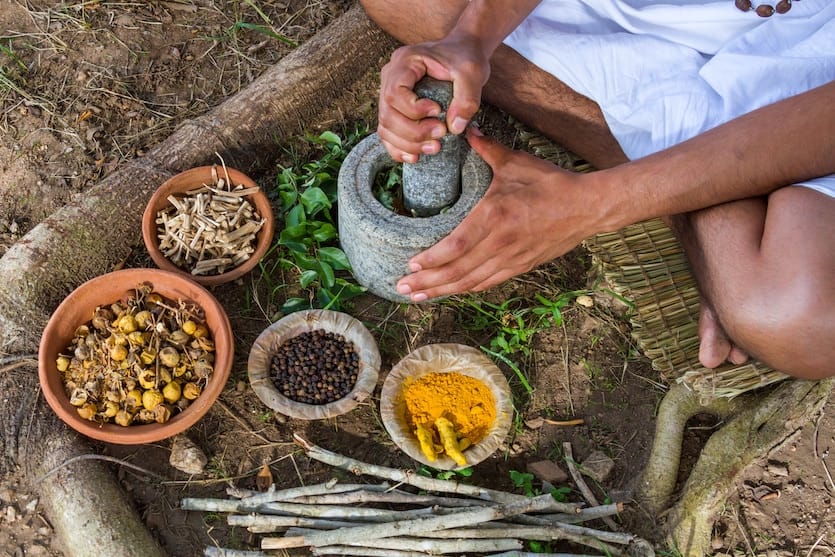Embracing Ayurvedic Diet and Lifestyle for Optimal Health
Ayurveda, an ancient system of medicine originating in India over 5,000 years ago, emphasizes a balanced diet and lifestyle as key components to achieving and maintaining optimal health
Ayurveda, an ancient system of medicine originating in India over 5,000 years ago, emphasizes a balanced diet and lifestyle as key components to achieving and maintaining optimal health. Here, we explore essential Ayurvedic diet and lifestyle tips to help you live a healthier, more balanced life.
Understanding Ayurveda
Ayurveda is based on the concept of balancing the three doshas—Vata, Pitta, and Kapha. Each dosha represents a unique combination of physical, mental, and emotional characteristics. An imbalance in any of these doshas can lead to health issues. The goal of Ayurveda is to maintain equilibrium among these doshas through diet, lifestyle, and natural therapies.
Ayurvedic Diet Tips
Eat According to Your Dosha:
Vata: Those with a predominant Vata dosha should consume warm, moist, and grounding foods. Favor cooked grains like rice and oatmeal, root vegetables, and warm milk. Avoid raw, cold, and dry foods.
Pitta: Pitta types benefit from cooling, hydrating, and mildly spiced foods. Opt for sweet fruits, leafy greens, and dairy products. Limit spicy, oily, and salty foods.
Kapha: Kapha individuals thrive on light, dry, and warming foods. Include plenty of vegetables, legumes, and spices like ginger and turmeric. Reduce intake of heavy, oily, and sweet foods.
Seasonal Eating: Ayurveda recommends eating foods that are in season to align with nature's cycles. In the spring, eat lighter, detoxifying foods like leafy greens. In the summer, focus on cooling and hydrating foods such as melons and cucumbers. During the fall and winter, consume warming and nourishing foods like soups and stews.
Mindful Eating: Pay attention to your eating habits. Eat in a calm environment, chew your food thoroughly, and avoid distractions like television or smartphones. This practice aids digestion and ensures that you fully enjoy and appreciate your meals.
Herbal Support: Incorporate Ayurvedic herbs and spices into your diet for their therapeutic benefits. Turmeric, ginger, cumin, coriander, and fennel are excellent for digestion and overall health. Herbs like Ashwagandha and Triphala can support vitality and detoxification.
Hydration: Drink warm water throughout the day to aid digestion and detoxification. Herbal teas such as ginger, mint, and chamomile are also beneficial. Avoid cold beverages, as they can disrupt digestive fire (Agni).
Ayurvedic Lifestyle Tips
Daily Routine (Dinacharya): Establishing a consistent daily routine is crucial in Ayurveda. Wake up early, ideally before sunrise, and start your day with practices like tongue scraping, oil pulling, and self-massage (Abhyanga). Follow with gentle exercises such as yoga or a brisk walk.
Sleep Hygiene: Ensure you get adequate, restful sleep by maintaining a regular sleep schedule. Aim to go to bed and wake up at the same time each day. Create a calming bedtime routine, such as reading or meditating, to promote relaxation.
Stress Management: Practice stress-reducing activities regularly. Meditation, pranayama (breathing exercises), and yoga are highly recommended. Spending time in nature and engaging in hobbies you enjoy can also help balance your mind and emotions.
Seasonal Routines (Ritucharya): Adapt your lifestyle to the changing seasons. In the colder months, prioritize warmth and nourishment. In the hotter months, focus on cooling activities and foods. This practice helps maintain harmony with the environment and your body's natural rhythms.
Detoxification: Periodic detoxification is essential in Ayurveda to eliminate accumulated toxins (Ama) from the body. Simple practices like fasting, consuming detoxifying herbs, and undergoing Panchakarma (a series of Ayurvedic cleansing therapies) can rejuvenate your system.






